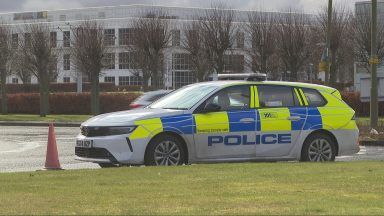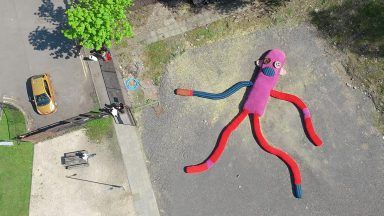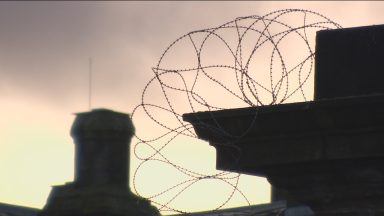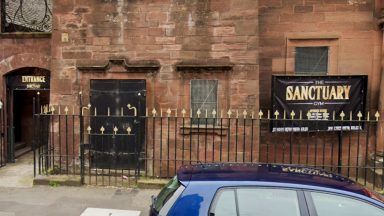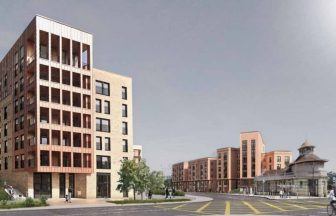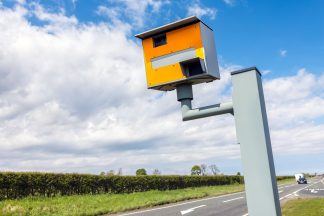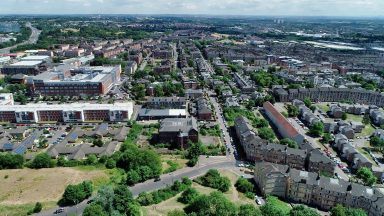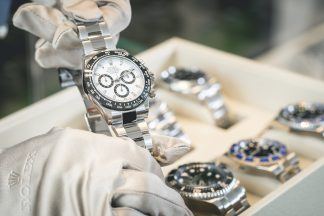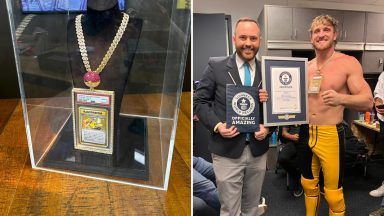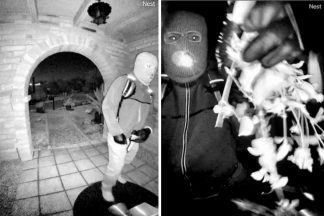A former Rangers administrator who sued prosecutors for a “malicious” fraud probe wants a judge to allow him to pass information onto any future investigation into the affair.
Lawyers for David Whitehouse told judge Lord Tyre that he had learned of information concerning prosecutors which he would wish to pass onto any future investigation.
Advocate Roddy Dunlop QC said that Mr Whitehouse possessed the information as a consequence of his previous multi-million pound civil claim against the Crown and Police Scotland.
But the Court of Session heard on Thursday how Mr Whitehouse needs a judge’s permission to pass the information onto any future probe.
Last year, Mr Whitehouse and his colleague Paul Clark launched a £20.8m compensation claim against the police and prosecutors over their arrests in a “unlawful” criminal probe at the Glasgow club.
Both Mr Whitehouse and Mr Clark later settled the action for an undisclosed sum.
Lawyers acting for the Crown Office previously admitted the two men were the subject of a ‘malicious’ prosecution.
On Thursday, Mr Dunlop – who appeared in court alongside Gerry Moynihan QC, the advocate representing the Crown in the action, – said that his client believed he could help highlight shortcomings in the prosecution.
He added : “Your lordship will doubtless have seen many commentators in this case in the press and legal articles of late saying that it is really unimaginable in modern-day Scotland that we could have a prosecution that was both without probable cause and malicious and yet this is exactly what we have here.
“Mr Whitehouse frankly wants to know why that happened. Now, there is every possibility that there is going to be a public inquiry into that – we don’t know that yet and I’m not expecting my learned friend Mr Moynihan to say whether or not that will be so. He doubtless won’t yet know.
“If there is an inquiry, Mr Whitehouse wants to participate fully in that. If there’s not – in any event Mr Whitehouse wants the ability to bring his concerns to the appropriate authorities by way of complaint and demand for investigation into how on Earth this happened and who is responsible for it.
“In order that he may do that he wants to be able to use the documents he has had sight of and what he doesn’t want to do is find himself in contempt of court in so doing.”
Mr Whitehouse and Mr Clark’s actions have stemmed from their alleged treatment by the police and prosecution authorities.
The pair were arrested following events surrounding Rangers’s financial position last decade.
The two men were appointed administrators of the club in February 2012. The club was liquidated in October 2012 and both Mr Whitehouse and Mr Clark left their positions.
Police then arrested Mr Whitehouse and charged him with offences relating to businessman Craig Whyte’s takeover of Rangers in 2011.
Both men later saw the charges against them dropped.
Frank Mulholland QC – now Lord Mulholland – was the head of the prosecution service at the time.
It was claimed in the civil action brought by the two men that there wasn’t any justification for their detention, committal or prosecution and that the Crown never had sufficient evidence for any of the charges it brought.
Mr Whitehouse and Mr Clark won a ruling from a specially convened bench of five judges at the Court of Session in Edinburgh last year that the Lord Advocate did not have absolute immunity from a civil damages claim in such circumstances.
Last year, Crown lawyer Gerry Moynihan QC told the court that the Crown now admitted liability for wrongdoing in parts of the prosecution.
Mr Moynihan said his clients accepted that the two men’s rights under article five of the European Convention on Human Rights had been violated during the prosecution.
The violation referred to how they were detained in custody following their arrest in advance for their first appearance in court. Article five of the ECHR relates to the right to liberty and security.
Mr Moynihan said the two men’s right to a private life had been breached in relation to a press release which had been sent out in February 2016.
Mr Moynihan also said the Crown admitted that it acted unlawfully in its prosecution beyond the two men’s first appearance in court.
The pair’s action against the police and prosecutors has now concluded.
On Thursday, Mr Moynihan also told the court that the Lord Advocate was committed to properly investigating any claims of wrongdoing.
But he said Mr Whitehouse’s action had been concluded on the basis that the business expert accepted that there had been no criminality on the part of prosecutors.
Speaking about Mr Dunlop’s submissions, Mr Moynihan added: “I had understood from the Dean of Faculty that there was to be no discussion today of any of the merits of this and I’m somewhat disappointed that the Dean of Faculty has seen fit to repeat the coverage in the media and to refer to that.
“My Lord, in that event i have been instructed to make the position of the Lord Advocate quite clear in relation to the fairness to the witnesses against whom these allegations are being made.
“What I’ve been instructed to make clear is that the investigations undertaken for the purposes of these actions that were under the direction of the Lord Advocate and carried out by a team led by me have to date disclosed no criminal conduct.
“The Lord Advocate’s unwavering position has been and will continue to be in these proceedings is that he will give due consideration to any allegations.
“But I must make it clear – it will be obvious – that the actions settled on a certain basis that involved no suspicion of criminal activity on the basis of those involved.
“I apologise for making that statement. I repeat it only because the Dean of Faculty has repeated what has been said in the media and it is important that a balance is achieved.”
Mr Moynihan also told the court that the information given to Mr Whitehouse was provided to him on the basis of the civil action.
He said that the information came from witness statements. Mr Moynihan said that he needed time for the people who gave these statements to be spoken to in order to see if they objected to Mr Whitehouse’s request to be allowed to pass the information on.
Mr Moynihan asked to be given time so he could assess what position he could take in relation to Mr Whitehouse’s request.
He added: “In fairness to those witnesses their interests are involved and engaged the Lord Advocate would wish to communicate the minutes to them together with the minute of admissions because that in fact informs the basis to which the Lord Advocate has proceeded.
“Those individuals would be required to be given the opportunity to take legal advice if so advised because they may wish and have an interest to oppose the minutes in so far certainly as it relates to their statements.
“For that reason, I am asking for a period of four weeks for answers.”
Lord Tyre ordered the Lord Advocate to pay Mr Whitehouse’s legal costs on an enhanced basis between August and December last year. He also ordered the Lord Advocate to pay Mr Whitehouse’s legal costs on a normal basis between December 2020 and the present day.
Lord Tyre also allowed the documents detailing Mr Whitehouse’s request to be received by the court.
He also allowed Mr Moynihan a period of 28 days to formulate answers to the documents lodged by Mr Whitehouse.
The case is next expected to call on March 15 at 10am.
Lord Tyre added: “If the hearing is not needed then parties could let me know.”
Follow STV News on WhatsApp
Scan the QR code on your mobile device for all the latest news from around the country


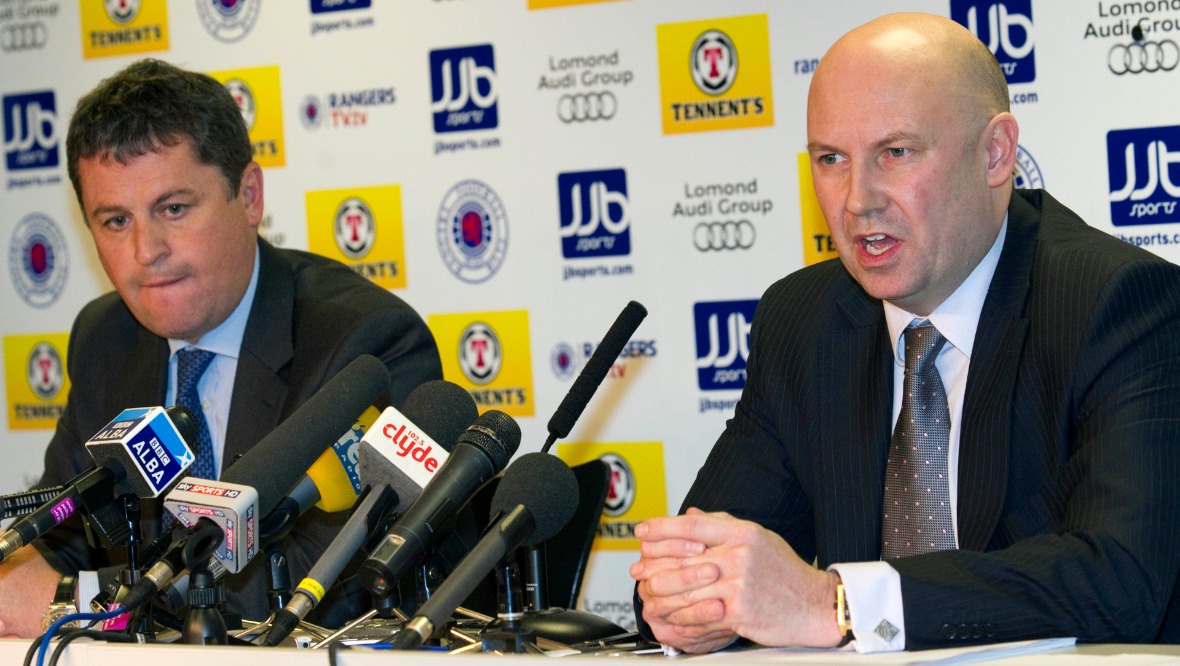 SNS Group
SNS Group




